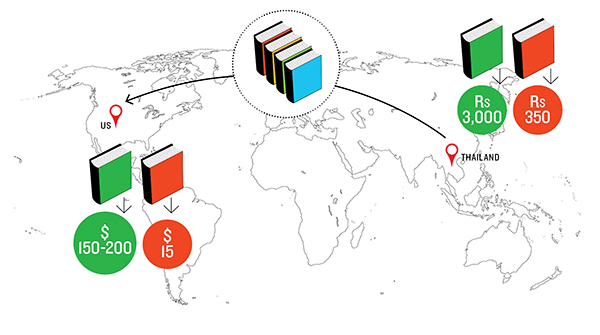
A New Chapter in Publishing
The case of an enterprising Thai student selling cheaper versions of books (bought in Thailand) in the US has prompted a court ruling that could change the way publishers sell books in developed and developing countries

Infographics: Sameer Pawar

Ruling hailed by consumers but panned by publishers
The International Publishers Association says: “Allowing the domestic importation of low-cost editions of textbooks from developing countries is a direct threat to low-cost editions themselves. Students in developing countries will, literally, pay a high price for this decision. One of the best developments for students in recent years has been differential pricing… It is unfortunate that these exciting new business models are now being threatened by such a decision.”
What does this mean?
Publishers could discontinue low-cost editions of text books for developing countries.
what publishers could do?
1. Publishers will discover new models
2. There will be more vernacular publishing
3. Special features will be added to books
4. Regional editions will be launched
What to expect
In the short term, expect low-cost editions from developing nations to flood Western markets. In the long term, digitisation of books will mute the impact. Digital content is licensed to users, not sold to them. So, ebooks and iTunes music cannot be resold.
(This story appears in the 03 May, 2013 issue of Forbes India. To visit our Archives, click here.)
Post Your Comment















